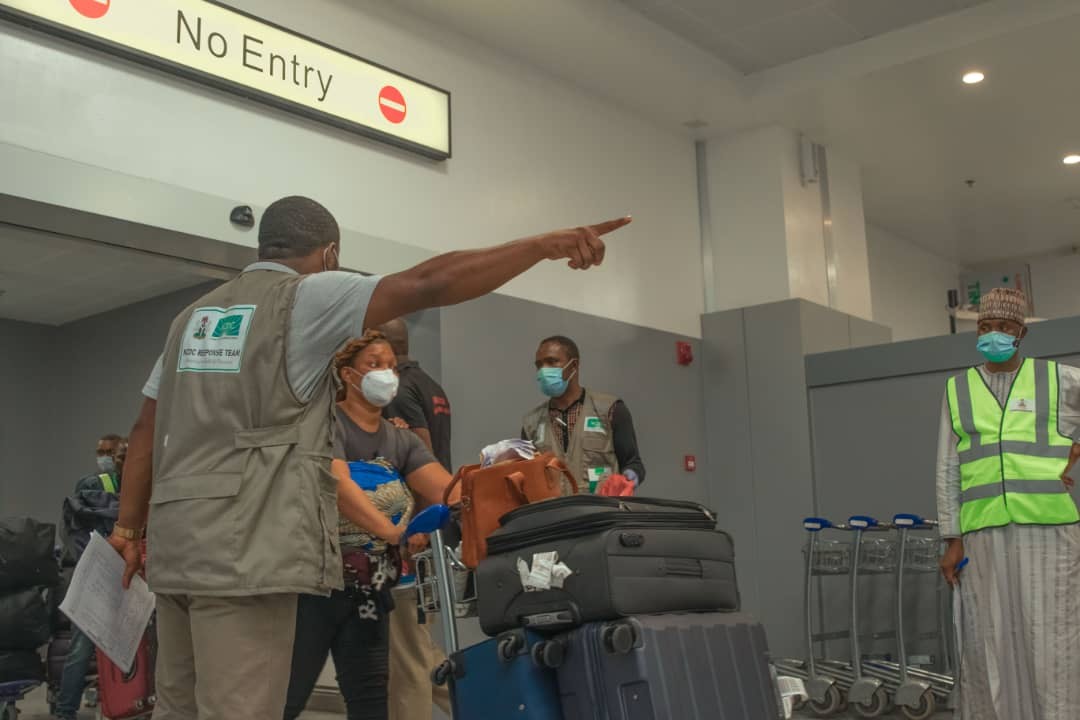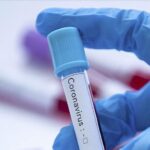For 39 years, no case of the rare viral monkeypox disease was reported in Nigeria. Then in 2017, the country was facing its largest outbreak.
More than 300 cases were reported between 2017 and 2019, mostly limited to Lagos and Delta on the coast.
By September, the virus jumped to the eastern coast, hitting Akwa Ibom. Nine other suspected cases 10 days later raised concern about the possibility the disease could spread further.
The Ebola outbreak from 2014 had taught Nigeria some lessons. When monkeypox came up in 2017, the Nigeria Centre for Disease Control published national guidelines for outbreak response and categorized monkeypox as a reportable disease.
That meant faster alerts and response. Rapid response teams deployed to Akwa Ibom to identify additional cases, trace possible contacts, improve surveillance, manage cases and collect samples.
The team identified eight more suspected cases—all tested negative. Of a total 18 suspected cases, only one was laboratory confirmed.
On the side, communications teams spoke about the virus and its risks. The situation was firmly under control.
But a rating of the country’s epidemics preparedness ranking on display says otherwise. According to the traffic-light ranking, Nigeria stands “not ready” at 39%. It is higher than Cameroon, Chad and Central African Republic to the east; higher than Niger to the north; and than Benin, Mali, Burkina Faso, Guinea and Mauritania to the west. Only Liberia, Cote d’Ivoire and Ghana fare better in mid-40’s ranking in percentage.
It is the red mark that the country is worried about. Nigeria’s joint external evaluation into International Health Regulations—which reviews a country’s capacity to prevent, detect and respond to public health threats—changed after several investments in interventions and infrastructure in the wake of Ebola outbreak.
Officials are optimistic that following some investments in health security made due to the COVID-19 response, another assessment will most likely reveal slight improvements in the country’s JEE ranking.

But what is keeping Nigeria in the red?
It is midday on a hot June day in 2019. Baiman Imani is settled in the cool interior of a health centre in Paikon Kore, a community of Abuja’s Gwagwalada area council.
At a nearby table attends to an ill infant cradled in his mother’s arms. The matron of the facility runs through drugs to administer. The day’s work started with the CHEW strapping blood pressure cuffs on a woman and reading off a sphygmomanometer. It is not a date for antenatal care and immunization, and this is as busy as it gets at PHC Paikon Kore.
Imani spends some time poring over sheets on her desk and filling in forms that determine what happens in Paikon Kore. The forms are to collect information on any disease outbreak for onward notification of the honchos of Gwagwalada area council.
Key informants spread throughout the community report on what they have seen or heard in their communities. It is the job of disease surveillance officer Imani to fill out the notification form. If there is nothing to report, she still fills out the form all the same for record purposes.
The disease notification forms detail the little things people in Paikon Kore would take for granted—who’s stooling, who’s vomiting, the nature of stool or vomit, who has a fever. But they are also the big untold indicators of a disease outbreak on the horizon.

Across the country, disease surveillance officers like Imani are filling out notification forms, and escalating notices to honchos at higher levels from council health officials to state disease detectives and onto national epidemiologists.
Their forms will feed into datasets and show up on dashboards at state and national levels.
The score comes from seven key areas fundamental to epidemic preparedness. Imani’s ability is Nigeria’s workforce development, ranked at 60%; the capability of the system to pick up her notification form is real-time surveillance, ranked at 55%.
The ability to laboratory confirm cases in Akwa Ibom is dependent on the national laboratory system, ranked 40%.
Ebola, monkeypox and the ongoing COVID-19 pandemic has forced the country to up its game on emergency response operations and risk communication, which are ranked 45% and 48% respectively.
But the country still falls short on overall preparedness—and more spectacularly on national legislation, policy and financing, ranked 20%.
The country has a five-year National Action Plan on Health Security going up to 2022, and costed at N133 billion. NCDC estimates it will require N100 billion over the coming four years to support the plan. It is a minute of what it requires—and a huge funding gap.
“NCDC needs substantial, sizeable and sustainable funding for health security,” says Priscilla Ibekwe, director for special duties at NCDC. She was speaking at an event organized to stoke need for improved funding to back epidemic preparedness and response.
“Considering the need, we need not just a one-off.”

NCDC has made itself relevant in this past decade—helping the country keep the next epidemic at bay. But it needs the mother federal health ministry to make an even bigger case for sustained funding with the Budget Office once the budget cycle kicks in.
Every department, ministry and agency listed in the NAPHS has its role spelt out, but getting them all to have a decided “epidemic preparedness and health security” desk doesn’t make sense, experts have said.
“You don’t expect all ministries to make budgetary provision for health security,” advised March Sati, of the Budget Office’s health desk.
“Make a desk at the NCDC, and have the health minister push it.”
On the legislative front, the overriding objective is to ensure statutory and administrative provisions are in place for the implementation of IHR. Legislative action is still pending on the NCDC Bill of 2017.
It seeks to replace the 95-year-old Quarantine Act—and empower the health ministry and NCDC to make regulations on quarantining, vaccination and prevention of infectious diseases. The act, nearly a century old, is still the key instrument backing disease surveillance. It is one of six instruments still pending.
Among them is another piece of public health legislation older than the NCDC Bill—the Public Health Bill to establish a Public Health Emergency Planning Commission and to repeal the Quarantine Act of 1926.
Only the National Health Act of 2014 enacted to strengthen the national health system is in place. It mandates at least 1% of consolidated revenue goes into the Basic Health Care Provision Fund.
Since 2018, budgetary funds have been released three times, amounting to 25% of what BHCPF needs.
Director of the Africa Health Budget Network, Aminu Magashi, says NCDC, National Health Insurance Scheme and the National Primary Health Care Development Agency—three bodies at the heart of health security in Nigeria—need to continually engage, if only to continue advocating for better funding.
He says pockets of funding opportunities exist, but the capacity to tap into them is lacking.
“In civil society, we need to continue to coordinate,” he adds.

But appropriating the funding lies with lawmakers—and in particular, with political parties making health security a thing on their agenda, says Mohammed Usman, a federal lawmaker who has served on the national parliamentary committee on health services.
“On government agenda, health is almost number 7. Security is number 1; number 2 should be health—if not then education,” he says.
Mohammed also posits the health sector needs capacity to tap into pockets of hidden funding—counterpart funds, grants, loans, and the private sector, which has raised billions of naira to battle COVID-19.
“Inasmuch as we’ve found these money in the sytem—specifically not utilized—that money is not still enough when you consider the population of Nigeria,” says Mohammed.
“We must continue to advocate for more,” he says of the need to engage lawmakers and stir their political will to use their influence.
“In 2023, we must elect competent lawmakers in all positions. I’m sorry to say what we have are tea drinkers.”
Nigeria will not go beyond its current score on legislation, policy and financing until two things happen: a, that Legislation, laws, regulations, administrative requirements, policies or other government instruments in place are sufficient for implementation of IHR (2005) and, b, that it can demonstrate that it has adjusted and aligned its domestic legislation, policies and administrative arrangements to enable compliance with IHR (2005).
This story is part of the Epidemic Preparedness and Response series, with support from the “Global Health Advocacy Incubator, A Program of the Campaign for Tobacco Free Kids” and “Vital Strategies.”




